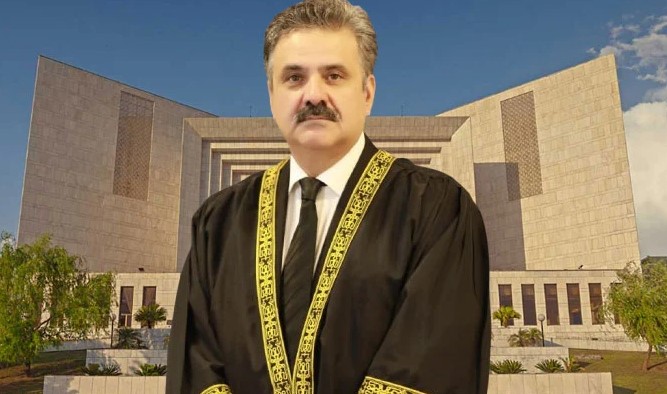canadian
Chief Minister (5k+ posts)
Ex-GCC residents on Canadianship path cry foul
Wednesday February 9 2011
By SUNIL RAO
That Canada is engaged in a worsening diplomatic tussle with the UAE over aircraft landing rights is well known.
What's perhaps less well known is that our officials appear to be engaged in one more UAE-centric battle - this one with those who had earlier resided in that part of the world.
This battle is ostensibly, and quite correctly, to safeguard Canada's own immigration laws, against possible residency fraudsters.
Only, it increasingly appears to be unfairly targeting law-abiding permanent residents seeking citizenship after they've completed the local requisite 1095-day (or three-year) residency requirement, critics charge.
(Disclosure: The writer finds himself one among this group.)
Several ex-UAE visa-holders are complaining that when they go for their Canadian citizenship test and the immigration officer sees the Arabic stamps in their passports, they're at this stage asked to provide a whole lot of additional documentation.
A Residency Checklist asks for 14 further pieces of documentation. Among these are requests for disclosures from such entities as the U.S. Customs and Border Division, Canada Border Services Agency, and Canada's Ministry of Health and Long Term Care.
Some of the requirements can prove quite expensive, the PR cardholders add. "Accredited translators charge upwards of $100 per page - and you can imagine the cost if 80 pages in each passport need to be translated," said one.
But their biggest grouse is the delay it entails. "I've had clients complaining they sent the additional documentation requested on the Residency Checklist, after writing their citizenship test, a year-and-a-half ago - and they're still awaiting a response," a frontline settlement agency employee told Focus.
Those who find themselves snarled up in this additional red-tape feel they've been unfairly targeted.
"The authorities can easily access the kind of information they're requesting, so asking us to provide it again only smacks of harassment," said another citizenship applicant (the complainants were reluctant to be identified, fearing future consequences).
Another said, darkly: "Mark my words, this forms part of the ongoing row Canada's having with the UAE."
CIC refutes charges
Citizenship and Immigration Canada refuted any such possibility.
"Every application is considered on its own merit and it is therefore possible that an applicant be asked different questions or required to provide different documentation," said CIC spokesperson Remi Lariviere in an emailed response.
"However, this group of people from the GCC region is not singled out," Lariviere clarified.
Immigration lawyer Ravi Jain concurred: "They're two separate issues. And anyway, the burden's always on the applicant to show he meets the residency requirements."
Applicants also complained they could have been asked to get the documents required in the 14-point Residency Checklist well in advance - for instance, when they initially appeared for their citizenship test.
"The Lord knows, they take long enough to call us for the test - more than 12 months in the case of Peel residents, as if we're somehow at fault for applying from a 'high-traffic area' - and we could use this time to get the required documents," pointed out one complainant.
"It would save us - and them - time, in the long run."
Asked about this issue, Lariviere's email offered a boilerplate reply: "Although an applicant has accumulated the 1,095 days required under paragraph 5(1)c) of the Citizenship Act, residence questionnaire and proofs of residence may be requested at any time in the process."
But immigration lawyer Jain's response was more enlightening: "Immigration Canada don't look on themselves as educators - they're more the gatekeepers."
In other words he implied, the emphasis is not on offering service to applicants; instead, they're the guardsmen to Canada's doors.
Added Jain: "Do you know, when a question on an application doesn't pertain to you, and you fail to enter in 'NA', they could even return the application to you saying it's incomplete."
Rampant fraud
In CIC's defence however, there is a widely-held industry perception that the level of residency fraud committed by foreign residents of Gulf Cooperation Council (GCC) countries is disproportionately high.
Citizenship and Immigration Minister Jason Kenney, without being specific, a few weeks ago even commended a Toronto detachment of the Royal Canadian Mounted Police, whose investigation resulted in criminal charges against three individuals.
The three had "created the appearance that hundreds of individuals living overseas had met the residence obligation required to retain permanent resident status or to obtain Canadian citizenship," Kenney's statement had said.
Jain agreed that while it was difficult to generalize, there could be a lot of people seeking to get such fraudulent Canadian residency, for a host of reasons.
"For instance, the mother and kids could come as landed immigrants to Canada while the father continues in his lucrative Gulf-based job," he said. "He could later seek direct citizenship.
"But what's ironical is that they don't need to resort to fraudulent means, for their spouse could subsequently sponsor them," Jain added.
Consequences for citizenship fraud may include criminal prosecution, revocation of citizenship and removal from Canada. Permanent residents who commit fraud may lose their permanent resident status and may be subject to removal from Canada.
Kenney's statement had further noted: "As indicated in media reports, there are a number of other ongoing police investigations regarding potential residence fraud across Canada."
Only problem is, the complainants add, they're as usual causing far more hardship to our law-abiding residents.
What you can do to avoid 'Residency Checklist' delays
Frontline Canadian citizenship officers make a judgment call in handing out an additional 'Residency Checklist' to those deemed to be coming from regions witnessing relatively high residency fraud.
The Gulf Cooperation Council - from where many South Asians are increasingly heading towards Canada - is deemed to be one such region, as per anecdotal evidence from ex-GCC residents.
While agreeing an applicant may be "asked different questions or required to provide different documentation" Citizenship and Immigration Canada however adds: "This group of people from the GCC region is not singled out."
The citizenship officers also say although they hate to do it, they have no option but to require such applicants to provide more documentation to prove residency, and that the citizenship judges would anyway require such additional documentation.
But that's not exactly what CIC says. As per an email from spokesperson Remi Lariviere, "Citizenship officers must exercise due diligence on behalf of the Department and advise citizenship judges when they have reason to believe that the applicant does not meet legislative requirements (emphasis ours) regardless of their country of origin."
Anecdotal evidence also suggests some frontline officers are more rigorous in their "due diligence" than others, leading to inconsistent application of the policy.
"I didn't face any of these problems," says one recent applicant. His follow-up question was unfortunate, yet telling: "What was the race or ethnicity of the officer who asked for more documentation?"
Such inconsistency also suggests further training for officers might not come amiss - although all it might do is only target more law-abiding PR cardholders in the dragnet.
In this situation, what can citizenship applicants do?
One thing they might try is to get the 14-point documentation required on the Residency Checklist at the time of their citizenship test itself. While there is no guarantee this will work, citizenship lawyers suggest it might be worth a try.
We reproduce below the salient points of the most recent Residency Checklist:
Residency Checklist
In order to assist the Citizenship Judge in determining whether you meet the residence requirements under section 5(1)(c) of the Citizenship Act, please:
- Complete the attached Residency Questionnaire and
- Provide a photocopy of supporting documents. The checklist below has been provided for your assistance. Please note that this list is only a guideline and, depending upon the individual case, other documents may be required. Please provide as many relevant documents as possible.
The documents you provide should cover the four (4) years immediately preceding the date of your citizenship application from ___ to ___.
1. Passports: all pages, including blank pages, of all passports and/or travel documents (valid and cancelled). Note: All passport stamps must be translated into English or French by an accredited translator.
2. Proof of employment: Income Tax returns, T4, T5, Notice of Assessment, employment letters.
3. Proof of domicile: rental/lease agreements, receipts, mortgage papers, tax bills, car, home, and life insurance policy.
4. School Records: transcripts, report cards, attendance records for self and for dependant children.
5. Financial Records (if self-employed): company tax returns, registration and incorporation documents, contracts, letters from suppliers or purchasers, invoices, log books, etc.
6. Personal Health Records: provide a copy of your Personal Health Claims Payment Summary. Make your request in writing including your Health Card number, date of birth and the summary period. This can be obtained from: Ministry of Health and Long Term Care, Corporate Administration Services, 49 Place D'Armes, 4th floor, Kingston, ON, K7L 5J3.
7. Travel History into Canada: a report of travel into Canada can be obtained free of charge by writing to: Director of Legislative Affairs and ATIP, Access to Information and Privacy, Canada Border Services Agency, 410 Laurier Avenue W, 11th Floor, Ottawa, ON, K1A 0L8.
8. Travel Record to and from U.S.A.: Mail your request to: Freedom of Information Act Request, U.S. Customs and Border Division, FOIA Division, 799 9t Street N.W., Mint Annex, Washington, DC 20001.
9. External documents: Travel Records or Record of Movement from foreign countries.
10. Banking Records: bank statements, credit card statements, and evidence of investments.
11. Family Presence: marriage/divorce certificates, children's birth certificates.
12. Community Involvement: donation receipts, membership cards, letters from agencies describing involvement.
13. A list of absences since arrival starting with the most recent. 14. Others: any additional supporting document that you wish to be considered; and/or evidence relevant to proving your residency in Canada(http://www.southasianfocus.ca/community/article/96243)
Wednesday February 9 2011
By SUNIL RAO
That Canada is engaged in a worsening diplomatic tussle with the UAE over aircraft landing rights is well known.
What's perhaps less well known is that our officials appear to be engaged in one more UAE-centric battle - this one with those who had earlier resided in that part of the world.
This battle is ostensibly, and quite correctly, to safeguard Canada's own immigration laws, against possible residency fraudsters.
Only, it increasingly appears to be unfairly targeting law-abiding permanent residents seeking citizenship after they've completed the local requisite 1095-day (or three-year) residency requirement, critics charge.
(Disclosure: The writer finds himself one among this group.)
Several ex-UAE visa-holders are complaining that when they go for their Canadian citizenship test and the immigration officer sees the Arabic stamps in their passports, they're at this stage asked to provide a whole lot of additional documentation.
A Residency Checklist asks for 14 further pieces of documentation. Among these are requests for disclosures from such entities as the U.S. Customs and Border Division, Canada Border Services Agency, and Canada's Ministry of Health and Long Term Care.
Some of the requirements can prove quite expensive, the PR cardholders add. "Accredited translators charge upwards of $100 per page - and you can imagine the cost if 80 pages in each passport need to be translated," said one.
But their biggest grouse is the delay it entails. "I've had clients complaining they sent the additional documentation requested on the Residency Checklist, after writing their citizenship test, a year-and-a-half ago - and they're still awaiting a response," a frontline settlement agency employee told Focus.
Those who find themselves snarled up in this additional red-tape feel they've been unfairly targeted.
"The authorities can easily access the kind of information they're requesting, so asking us to provide it again only smacks of harassment," said another citizenship applicant (the complainants were reluctant to be identified, fearing future consequences).
Another said, darkly: "Mark my words, this forms part of the ongoing row Canada's having with the UAE."
CIC refutes charges
Citizenship and Immigration Canada refuted any such possibility.
"Every application is considered on its own merit and it is therefore possible that an applicant be asked different questions or required to provide different documentation," said CIC spokesperson Remi Lariviere in an emailed response.
"However, this group of people from the GCC region is not singled out," Lariviere clarified.
Immigration lawyer Ravi Jain concurred: "They're two separate issues. And anyway, the burden's always on the applicant to show he meets the residency requirements."
Applicants also complained they could have been asked to get the documents required in the 14-point Residency Checklist well in advance - for instance, when they initially appeared for their citizenship test.
"The Lord knows, they take long enough to call us for the test - more than 12 months in the case of Peel residents, as if we're somehow at fault for applying from a 'high-traffic area' - and we could use this time to get the required documents," pointed out one complainant.
"It would save us - and them - time, in the long run."
Asked about this issue, Lariviere's email offered a boilerplate reply: "Although an applicant has accumulated the 1,095 days required under paragraph 5(1)c) of the Citizenship Act, residence questionnaire and proofs of residence may be requested at any time in the process."
But immigration lawyer Jain's response was more enlightening: "Immigration Canada don't look on themselves as educators - they're more the gatekeepers."
In other words he implied, the emphasis is not on offering service to applicants; instead, they're the guardsmen to Canada's doors.
Added Jain: "Do you know, when a question on an application doesn't pertain to you, and you fail to enter in 'NA', they could even return the application to you saying it's incomplete."
Rampant fraud
In CIC's defence however, there is a widely-held industry perception that the level of residency fraud committed by foreign residents of Gulf Cooperation Council (GCC) countries is disproportionately high.
Citizenship and Immigration Minister Jason Kenney, without being specific, a few weeks ago even commended a Toronto detachment of the Royal Canadian Mounted Police, whose investigation resulted in criminal charges against three individuals.
The three had "created the appearance that hundreds of individuals living overseas had met the residence obligation required to retain permanent resident status or to obtain Canadian citizenship," Kenney's statement had said.
Jain agreed that while it was difficult to generalize, there could be a lot of people seeking to get such fraudulent Canadian residency, for a host of reasons.
"For instance, the mother and kids could come as landed immigrants to Canada while the father continues in his lucrative Gulf-based job," he said. "He could later seek direct citizenship.
"But what's ironical is that they don't need to resort to fraudulent means, for their spouse could subsequently sponsor them," Jain added.
Consequences for citizenship fraud may include criminal prosecution, revocation of citizenship and removal from Canada. Permanent residents who commit fraud may lose their permanent resident status and may be subject to removal from Canada.
Kenney's statement had further noted: "As indicated in media reports, there are a number of other ongoing police investigations regarding potential residence fraud across Canada."
Only problem is, the complainants add, they're as usual causing far more hardship to our law-abiding residents.
What you can do to avoid 'Residency Checklist' delays
Frontline Canadian citizenship officers make a judgment call in handing out an additional 'Residency Checklist' to those deemed to be coming from regions witnessing relatively high residency fraud.
The Gulf Cooperation Council - from where many South Asians are increasingly heading towards Canada - is deemed to be one such region, as per anecdotal evidence from ex-GCC residents.
While agreeing an applicant may be "asked different questions or required to provide different documentation" Citizenship and Immigration Canada however adds: "This group of people from the GCC region is not singled out."
The citizenship officers also say although they hate to do it, they have no option but to require such applicants to provide more documentation to prove residency, and that the citizenship judges would anyway require such additional documentation.
But that's not exactly what CIC says. As per an email from spokesperson Remi Lariviere, "Citizenship officers must exercise due diligence on behalf of the Department and advise citizenship judges when they have reason to believe that the applicant does not meet legislative requirements (emphasis ours) regardless of their country of origin."
Anecdotal evidence also suggests some frontline officers are more rigorous in their "due diligence" than others, leading to inconsistent application of the policy.
"I didn't face any of these problems," says one recent applicant. His follow-up question was unfortunate, yet telling: "What was the race or ethnicity of the officer who asked for more documentation?"
Such inconsistency also suggests further training for officers might not come amiss - although all it might do is only target more law-abiding PR cardholders in the dragnet.
In this situation, what can citizenship applicants do?
One thing they might try is to get the 14-point documentation required on the Residency Checklist at the time of their citizenship test itself. While there is no guarantee this will work, citizenship lawyers suggest it might be worth a try.
We reproduce below the salient points of the most recent Residency Checklist:
Residency Checklist
In order to assist the Citizenship Judge in determining whether you meet the residence requirements under section 5(1)(c) of the Citizenship Act, please:
- Complete the attached Residency Questionnaire and
- Provide a photocopy of supporting documents. The checklist below has been provided for your assistance. Please note that this list is only a guideline and, depending upon the individual case, other documents may be required. Please provide as many relevant documents as possible.
The documents you provide should cover the four (4) years immediately preceding the date of your citizenship application from ___ to ___.
1. Passports: all pages, including blank pages, of all passports and/or travel documents (valid and cancelled). Note: All passport stamps must be translated into English or French by an accredited translator.
2. Proof of employment: Income Tax returns, T4, T5, Notice of Assessment, employment letters.
3. Proof of domicile: rental/lease agreements, receipts, mortgage papers, tax bills, car, home, and life insurance policy.
4. School Records: transcripts, report cards, attendance records for self and for dependant children.
5. Financial Records (if self-employed): company tax returns, registration and incorporation documents, contracts, letters from suppliers or purchasers, invoices, log books, etc.
6. Personal Health Records: provide a copy of your Personal Health Claims Payment Summary. Make your request in writing including your Health Card number, date of birth and the summary period. This can be obtained from: Ministry of Health and Long Term Care, Corporate Administration Services, 49 Place D'Armes, 4th floor, Kingston, ON, K7L 5J3.
7. Travel History into Canada: a report of travel into Canada can be obtained free of charge by writing to: Director of Legislative Affairs and ATIP, Access to Information and Privacy, Canada Border Services Agency, 410 Laurier Avenue W, 11th Floor, Ottawa, ON, K1A 0L8.
8. Travel Record to and from U.S.A.: Mail your request to: Freedom of Information Act Request, U.S. Customs and Border Division, FOIA Division, 799 9t Street N.W., Mint Annex, Washington, DC 20001.
9. External documents: Travel Records or Record of Movement from foreign countries.
10. Banking Records: bank statements, credit card statements, and evidence of investments.
11. Family Presence: marriage/divorce certificates, children's birth certificates.
12. Community Involvement: donation receipts, membership cards, letters from agencies describing involvement.
13. A list of absences since arrival starting with the most recent. 14. Others: any additional supporting document that you wish to be considered; and/or evidence relevant to proving your residency in Canada(http://www.southasianfocus.ca/community/article/96243)





























